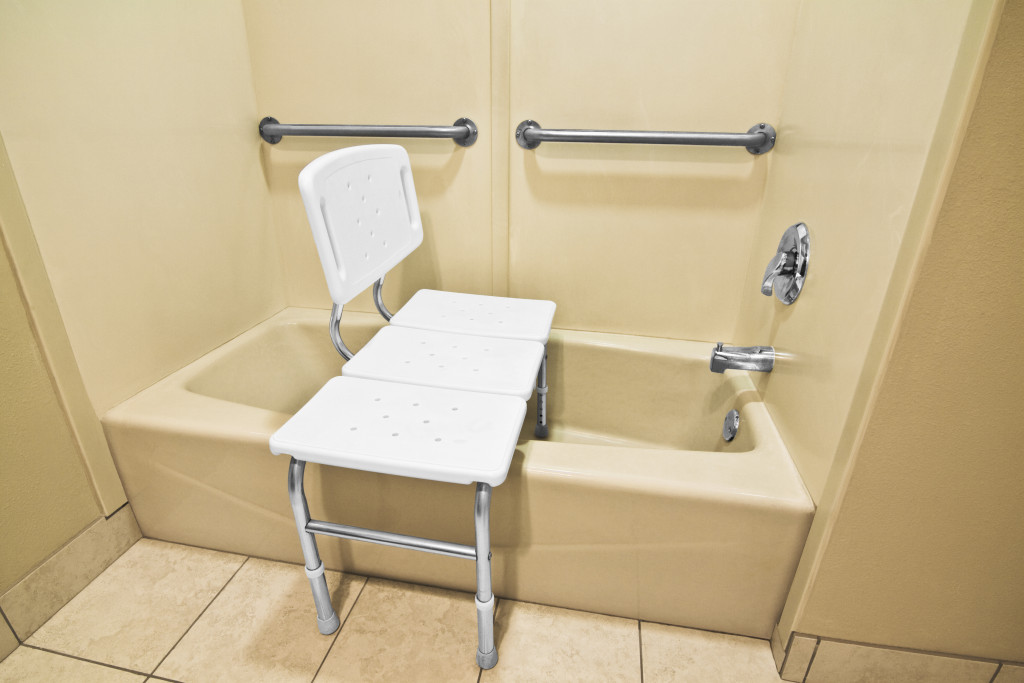- Encouraging active participation in social activities and fostering cognitive skills can significantly enhance the independence of seniors.
- Technological proficiency in seniors is vital in today’s digital world, offering numerous benefits from strengthening social connections to making everyday tasks manageable.
- Improving accessibility at home and making necessary modifications can help seniors easily navigate their surroundings, promoting self-reliance.
- Respecting seniors’ decisions and including them in decision-making processes promotes their independence and maintains their dignity.
As you cherish your senior family members, it’s pertinent to encourage their independence and freedom. Providing them autonomy respects their life experiences and contributes to their overall well-being and self-esteem. Explore some of the best ways to promote this independence, balancing necessary care and their desire to be self-reliant.
Encourage Active Engagement
Encouraging seniors to engage in their communities and personal interests actively is paramount for promoting independence. Here are a few tips:
Promote Social Connections

Fostering social connections is critical for seniors as it can significantly improve their emotional health. By facilitating their participation in various social functions such as community events, book clubs, or religious gatherings, you can help them feel more connected and less isolated.
It’s also beneficial to encourage regular communication with friends and family in person, over the phone or through video calls. Furthermore, volunteering opportunities can offer a valuable outlet for seniors to share their skills and experiences, contributing to a sense of usefulness and fulfillment. Meeting new people and maintaining existing relationships will promote a positive outlook and stimulate cognitive function, contributing to their independence.
Foster Cognitive Skills
Boosting cognitive skills is another crucial aspect of promoting independence in seniors. Encouraging activities stimulating the brain, such as reading, solving puzzles, playing board games or learning a new skill, can significantly enhance cognitive function. This cognitive stimulation helps maintain memory, reasoning, and problem-solving capabilities – all vital elements of self-reliance.
Technology can also play a vital role, with numerous brain training apps and online courses available designed specifically for seniors. Furthermore, creative pursuits such as painting, music, or gardening can spark joy and provide a cognitive workout.
Studies show that mental stimulation can slow cognitive decline and improve quality of life. By maintaining cognitive health, seniors can continue doing tasks independently, make informed decisions, and remain engaged with their surroundings – all contributing to their overall sense of independence.
Enable Technological Proficiency
In today’s digital world, enabling technological proficiency in seniors is indispensable in promoting their independence. Technology offers numerous benefits, from strengthening social connections to providing mental stimulation and making everyday tasks more manageable.
Seniors can keep in touch with loved ones through messaging apps, engage in brain-boosting activities through various educational platforms, and access various services online, such as grocery delivery, healthcare services, and more. Assisting seniors in mastering these technological skills can dramatically enhance their autonomy, as they navigate their daily activities independently.
However, it’s important to introduce technology in a patient and supportive manner, ensuring it’s a tool that empowers rather than overwhelms them. Thus, promoting technological proficiency is a significant step towards enabling seniors to maintain their independence and enjoy a higher quality of life.
Enhance Accessibility at Home

Enhancing accessibility at home is a vital factor in promoting independence among seniors. By making simple modifications and adjustments to their living space, you can help seniors navigate their surroundings easily and safely. This could involve installing grab bars in the bathroom, improving lighting in all areas, reducing trip hazards like loose rugs, and rearranging furniture for an unobstructed path.
Moreover, smart home technology such as voice-controlled devices or automated lighting systems can further aid their daily activities. Adapting the home environment to their specific needs and physical capabilities is crucial, facilitating self-sufficiency. By improving home accessibility, you provide seniors with a safer living environment and foster their confidence to perform daily tasks independently, enhancing their self-esteem and quality of life.
Assisted Living Consideration
When seniors’ needs for independence and self-reliance intersect with the requirement for more care and assistance than can be provided at home, assisted living emerges as a viable option. Assisted living facilities are designed to support seniors’ autonomy while providing appropriate care services.
They offer a balance between independent living and the availability of medical and personal care when needed. These facilities provide private living spaces, meal services, and arrange social activities, contributing to a vibrant senior community where residents can forge meaningful connections.
Additionally, they offer help with daily tasks such as medication management, bathing, and transportation. By providing a supportive living environment that respects the individual’s desire for independence, assisted living facilities can significantly enhance the seniors’ sense of dignity, comfort, and overall quality of life.
Respect Their Decisions
Respecting seniors’ decisions is essential to promoting their independence and dignity. It’s crucial to include them in decisions about their life, whether it’s about their daily routine, healthcare choices, or living arrangements. This decision-making participation gives them a sense of control and boosts their confidence.
It’s also a way to show your acknowledgment and respect for their life experiences and wisdom. While it may sometimes be challenging, especially when their safety or health is at stake, it’s important to have open and honest discussions, providing guidance and recommendations without imposing your choices.
By respecting their autonomy in decision-making, you can help seniors maintain their self-esteem, enhance their emotional well-being, and, most importantly, ensure that their life continues to have the meaning and purpose they desire.
So, take that extra step today, connect with your elderly loved ones, engage them in stimulating activities, and most importantly, respect their autonomy. Your support can make a world of difference.